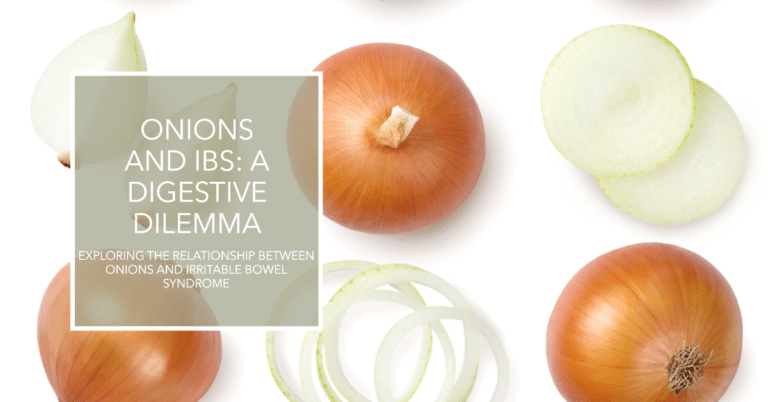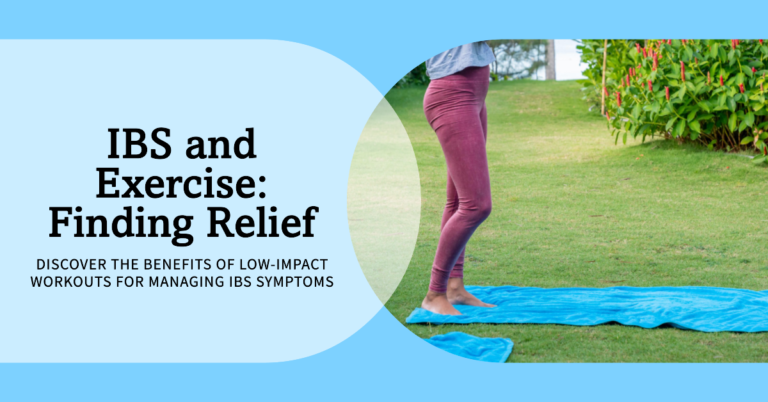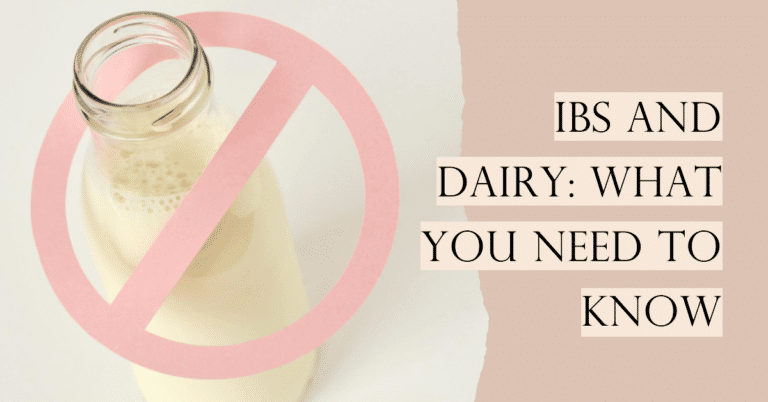IBS and Weight Loss: Causes & Tips for Effective Management

Finding it impossible to lose weight no matter what you try due to irritable bowel syndrome? You’re not alone.
Symptoms of IBS like abdominal pain, bloating and diarrhea can impair weight loss efforts.
But the good news is you can treat IBS naturally through diet changes that reduce inflammation and restore gut balance.
Discover simple yet effective ways to manage IBS while supporting sustainable weight loss in my complete guide to the link between IBS and weight loss.
Key Takeaways:
- IBS may affect nutrient absorption and lead to weight loss.
- Certain foods and medications may contribute to weight gain in individuals with IBS.
- Fluctuations in weight can occur due to gastrointestinal inflammation, bloating, diarrhea, or constipation associated with IBS.
- Managing diet, exercise, sleep, and stress is important for weight control in individuals with IBS.
What Causes IBS to Lead to Weight Gain?
So what’s behind those frustrating extra pounds that seem to creep on when you’re dealing with IBS?
Here are some of the key reasons some people with IBS tend to gain weight:
- Consuming extra calories to cope with IBS symptoms or medication side effects
- Becoming less active due to symptom flare-ups
- Experiencing fluid retention or bloating from intestinal inflammation
- Weight gain as a side effect of certain medications used for IBS
Of these factors, people with IBS-C or constipation-dominant IBS appear to face the highest risk for weight gain related to their IBS [1].
Constipation contributes to poor nutrient absorption from food. It also causes changes to gut bacteria that can promote weight gain.
What Causes IBS to Lead to Weight Loss?
On the flip side, many people who have IBS grapple with weight loss or difficulty gaining weight.
You can experience weight loss with IBS in these key ways:
- Frequent diarrhea prevents the body from properly absorbing nutrients
- Following strict diets to try to control IBS symptoms reduces overall calorie intake
- Avoiding trigger foods leads to cutting calories unintentionally
- Appetite loss and nausea during IBS flare-ups
- Increased metabolism related to intestinal inflammation
- Unplanned calorie deficits from dietary and eating habit adjustments
Those with IBS-D or diarrhea-predominant IBS usually face more problems with weight loss tied to their IBS.
The diarrhea makes it extremely difficult for the body to absorb nutrients as it should.
Can Dietary Changes Help Manage Weight with IBS?
One diet that is frequently recommended to help control IBS symptoms is called the low FODMAP diet.
FODMAP foods are particular types of fermentable carbohydrates that may not be digested properly and can trigger IBS issues.
Research shows following a low FODMAP diet can significantly improve symptoms such as bloating, gas, abdominal pain, diarrhea and constipation for many IBS patients [2].
Easing these disruptive symptoms may make it easier to maintain a stable weight.
However, the diet can be challenging to follow strictly. Some people find the extensive food restrictions lead to consuming fewer calories overall and unintended weight loss.
If you want to try this diet, having a dietitian’s guidance is recommended to ensure you are still meeting all of your nutritional needs.
How Can Exercise Help with Weight Management and IBS?
Getting regular exercise offers many advantages for managing IBS and weight:
- Exercise helps reduce anxiety and stress that can worsen IBS symptoms
- It supports healthy digestion and gut motility
- Active people tend to sleep better and have an improved overall sense of wellbeing
- When paired with a nutritious diet, exercise helps sustain a moderate, healthy weight
- It decreases risks of weight gain related to being inactive
Aim for a combination of low-impact cardio, strength training and gentle core exercises that do not exacerbate your IBS symptoms. Activities like walking, swimming or yoga are usually well tolerated.
Tips for Maintaining a Healthy Weight with IBS
Finding the right formula to manage symptoms, nourish your body and sustain a moderate, healthy weight requires some patience and persistence when you’re living with IBS. Here are some tips to help:
- Work with a dietitian or nutritionist for a customized diet plan and help you identify and avoid trigger foods
- Get at least 7-9 hours of quality sleep per night
- Stay hydrated by drinking at least 64 ounces of fluids daily
- Follow prescribed medication for symptom control and adopt stress-reducing strategies like meditation, counseling, or yoga
Living with IBS poses challenges, but being mindful of how your symptoms influence your weight can empower you to take control.
Working closely with your healthcare providers to tailor your treatment plan gives you the best chance of managing your condition and achieving weight goals.
IBS And Weight Loss: FAQs
What are some common symptoms of irritable bowel syndrome (IBS)?
Some typical IBS symptoms include abdominal pain, bloating, gas, constipation, diarrhea, or switching between constipation and diarrhea. Nausea, fatigue and anxiety can also occur. Symptoms vary from person to person.
Can IBS result in weight loss?
Yes, IBS can result in weight loss, especially diarrhea-predominant IBS. The diarrhea prevents proper nutrient absorption. Strict dieting, food avoidance, poor appetite during flares, and increased metabolism from intestinal inflammation may also cause weight loss.
How might IBS cause weight gain?
Constipation from IBS can cause weight gain by reducing nutrient absorption and altering gut bacteria. Medications, inactivity during flares, inflammation, and increased calorie intake to cope with symptoms can also contribute to weight gain.
What role can diet play in managing weight with IBS?
Eliminating trigger foods using an elimination diet may help reduce IBS symptoms. A low FODMAP diet that restricts certain carbs is beneficial for some people but can be hard to follow long-term. Work with a dietitian to ensure nutritional needs are met.
How does IBS affect normal body weight?
IBS symptoms can make it challenging to maintain a stable, moderate body weight. Fluctuations in weight due to diarrhea, poor nutrient absorption, strict dieting, inflammation, and medication side effects are common.
Can IBS cause unexplained weight loss or gain?
Yes, IBS commonly leads to unintended weight loss or weight gain that cannot be explained by changes in diet or physical activity. These unexplained shifts are tied to the various ways IBS symptoms disrupt digestion, absorption, metabolism, and more.
Should I try to lose excess weight if I have IBS?
Losing excess weight in a healthy way through diet and exercise may help reduce IBS symptoms for some people. But take care not to exacerbate symptoms. Work closely with your healthcare provider on a weight loss plan tailored to your IBS.
Can IBS worsen digestive symptoms?
Yes, IBS can worsen digestive symptoms such as abdominal pain, bloating, constipation, diarrhea, nausea, and gas. Symptoms may alternate between constipation and diarrhea. IBS is considered a functional bowel disorder that adversely affects digestion.
What can I do to ease IBS symptoms?
Dietary changes like a low FODMAP diet, certain IBS medications, drinking plenty of water, managing stress, exercise, and adopting healthy bowel habits can help ease IBS symptoms like constipation, diarrhea, and abdominal discomfort.
How can I manage my weight with IBS?
To manage weight changes related to IBS, working with a dietitian, exercising regularly, taking prescribed medications, reducing stress, and getting enough sleep are helpful.
It is important to consult a medical professional to diagnose IBS and rule out other conditions like celiac disease or inflammatory bowel disease.
Disclaimer: This content is based on my personal experience as an individual diagnosed with celiac disease and IBS (Irritable Bowel Syndrome) who follows a strict gluten-free diet. This does not constitute medical advice. Please consult a medical professional, nutritionist, or qualified dietitian for personalized, professional advice.






